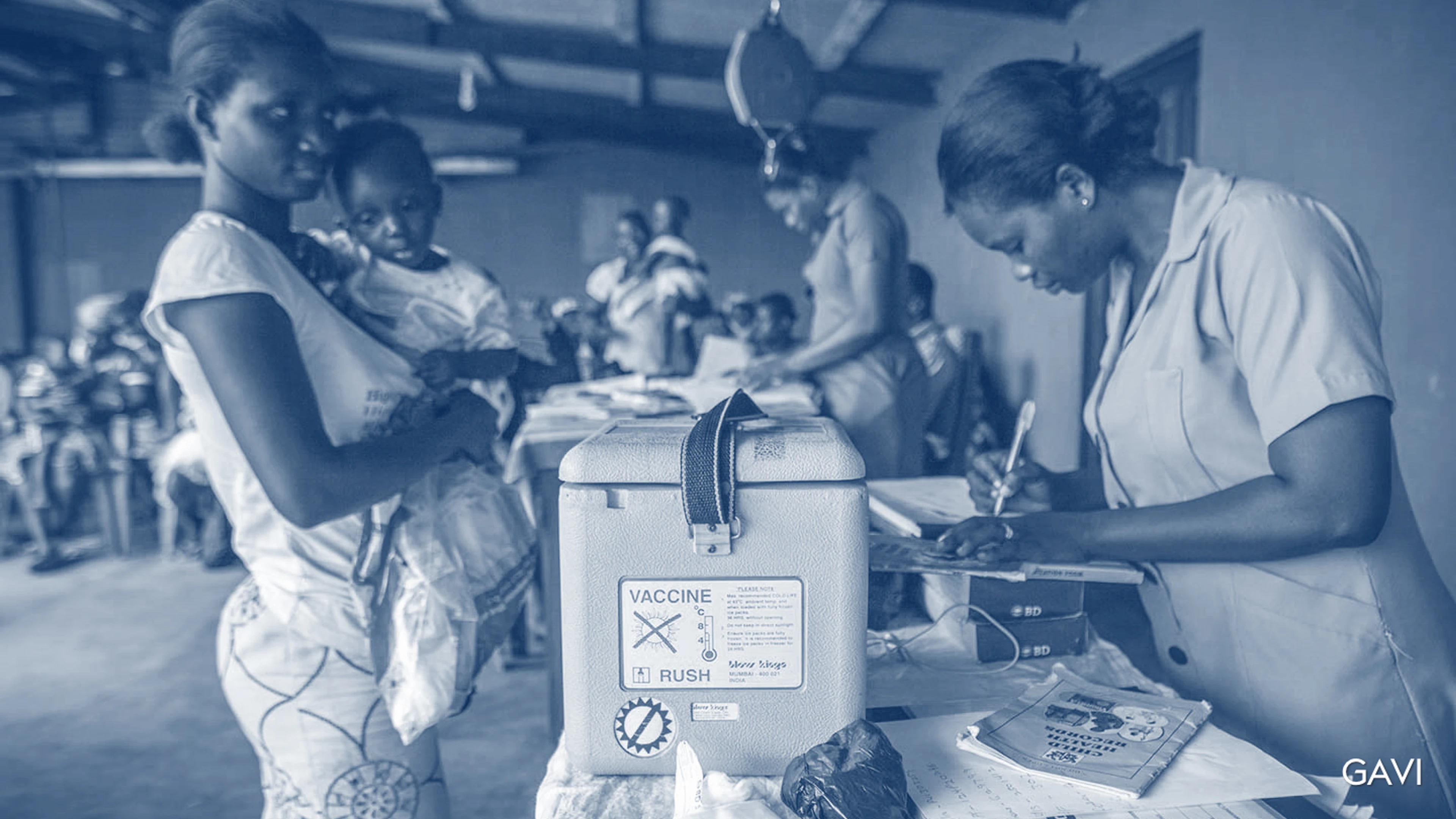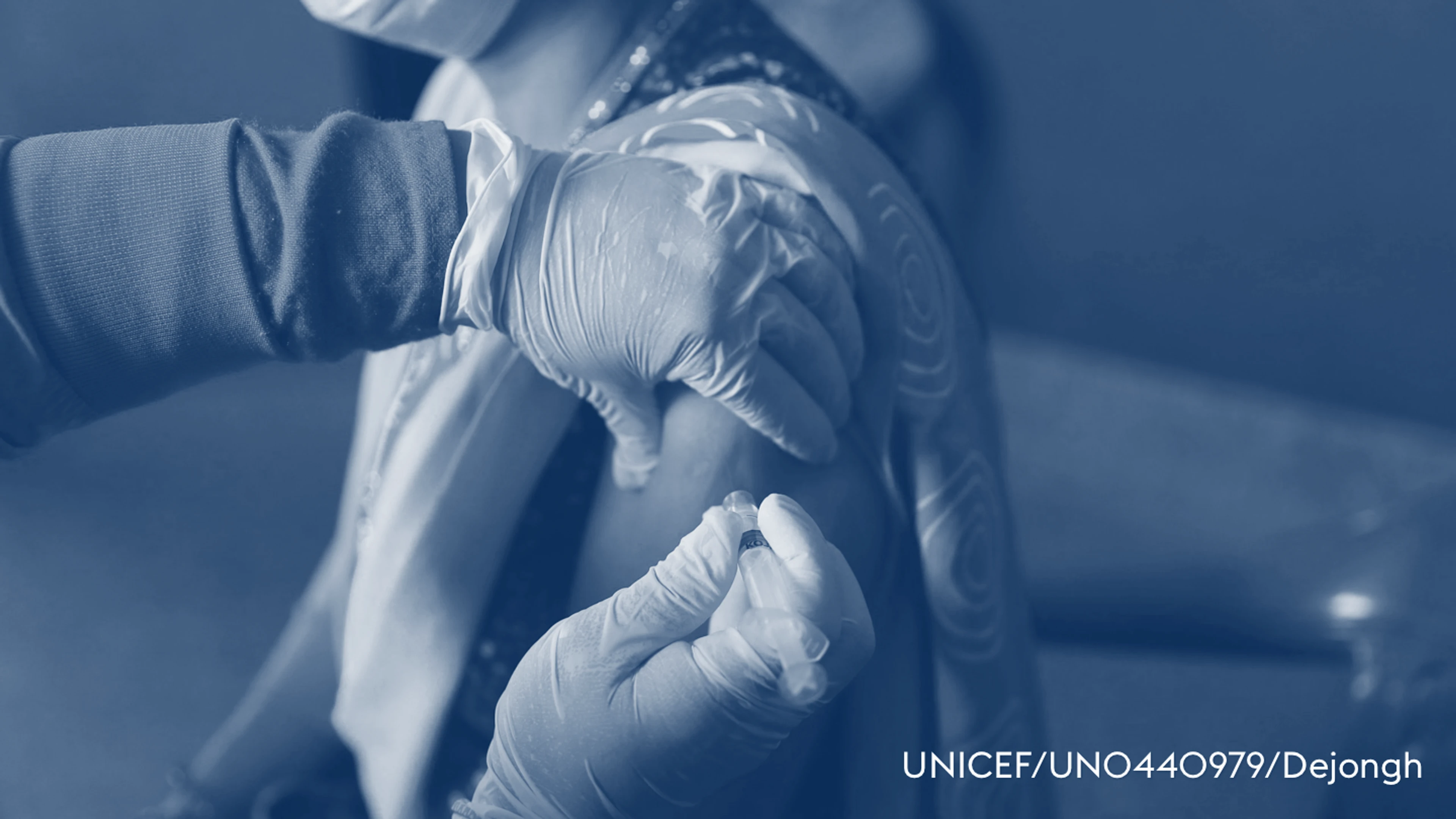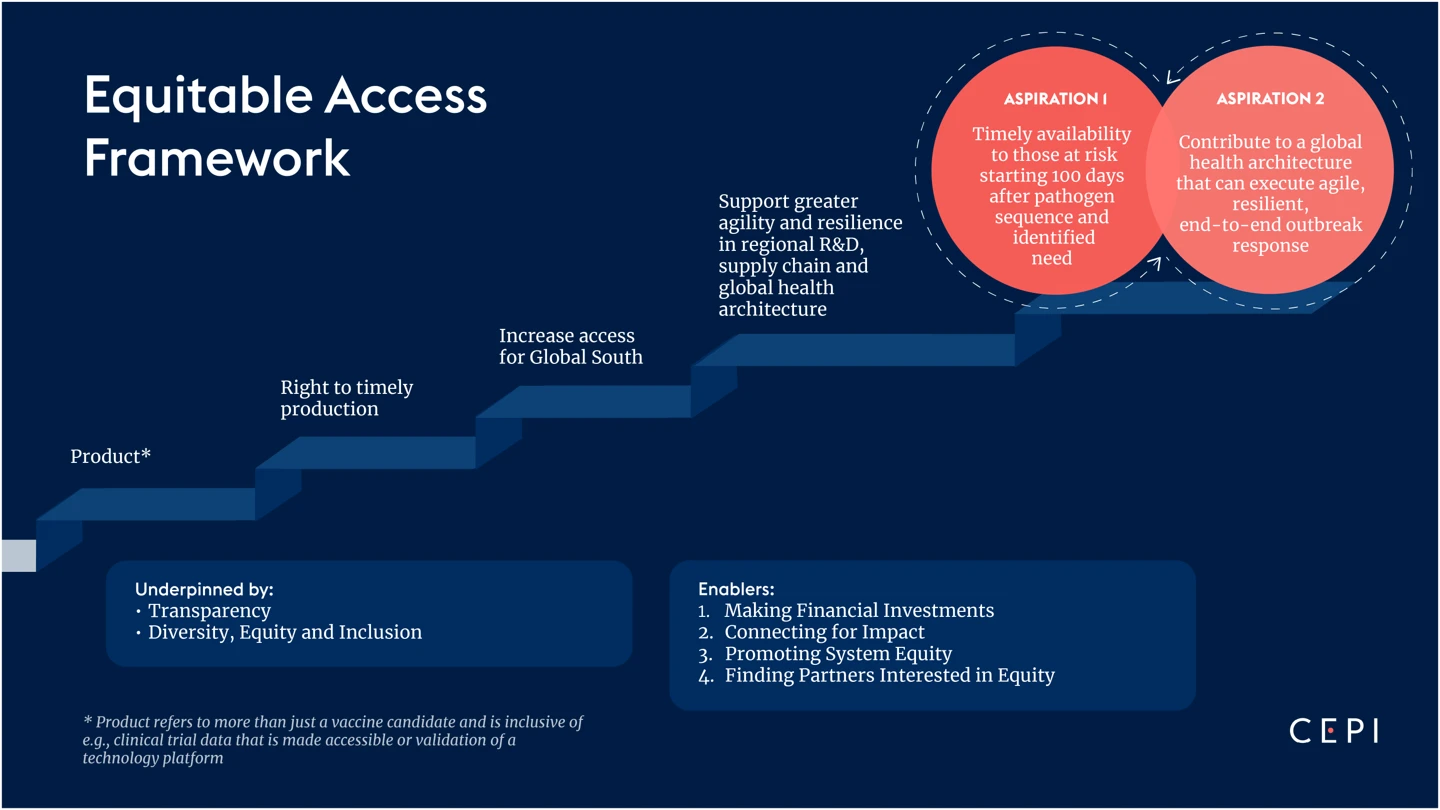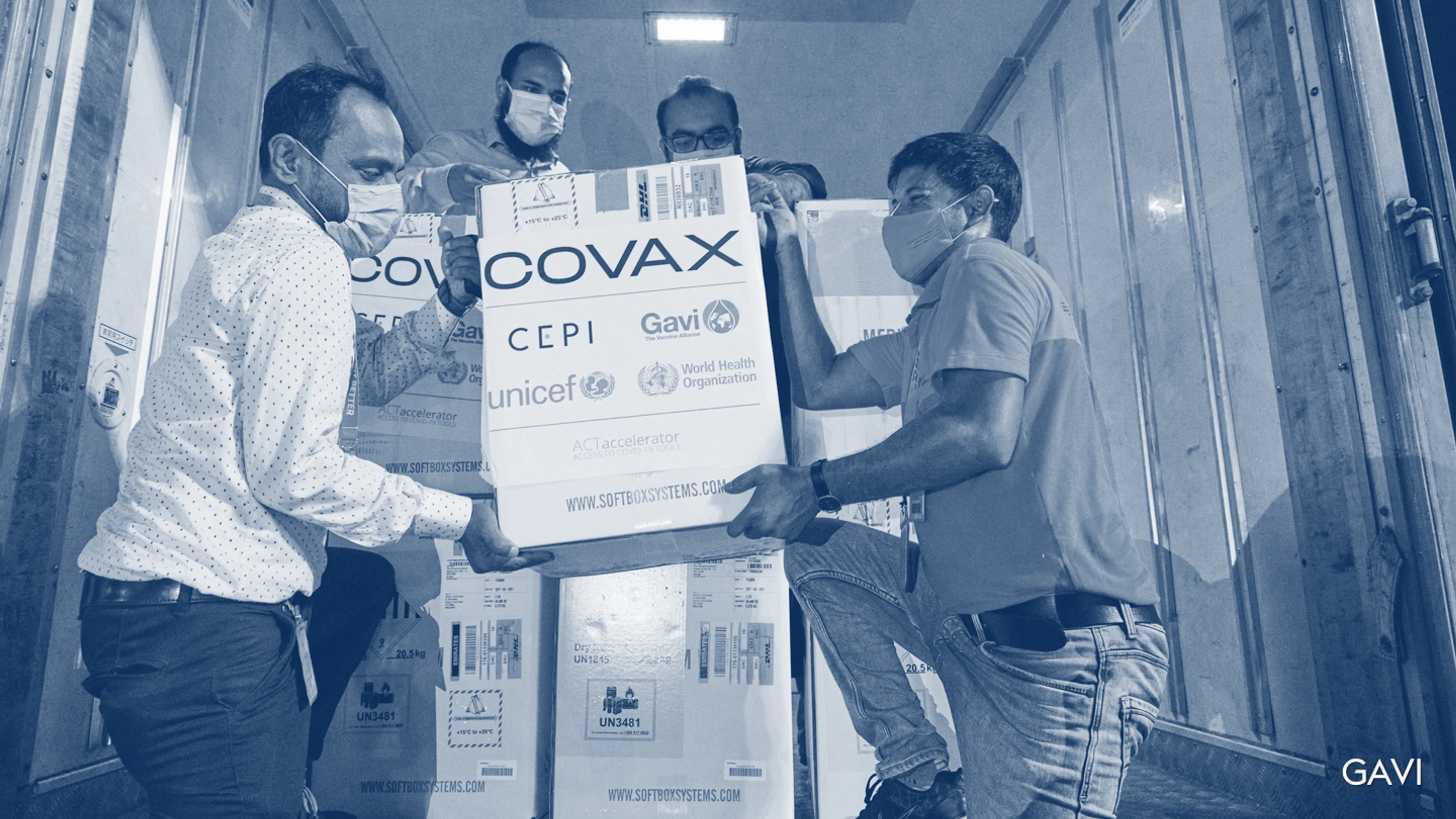Enabling equitable access
CEPI’s mission is to accelerate the development of vaccines and other biologic countermeasures against epidemic and pandemic threats so they can be accessible to all people in need.

CEPI’s commitment to equitable access
A commitment to equitable access is inscribed in CEPI’s DNA. It is core to CEPI’s vision of a world in which epidemics and pandemics are no longer a threat to humanity. CEPI’s commitment to equitable access informs every aspect of our work and has done so since our very beginnings.
Equitable access to epidemic or pandemic vaccines in the context of an outbreak means that appropriate vaccines are first available to populations when and where they are needed to end an outbreak or curtail an epidemic or pandemic, regardless of ability to pay.
Equity is at the heart of CEPI’s 100 Days Mission: its central goal is to enable timely availability of CEPI-supported products to those at risk, starting in just 100 days. That’s because being able to start delivering effective vaccines within 100 days of a threat emerging – wherever it is in the world, to whoever needs it most – will systematically reduce the threat posed by future infectious disease outbreaks for everyone, everywhere.
Of course, for the 100 Days Mission to achieve the greatest possible public health impact the world needs a global health security system that is configured to deliver equitable outcomes. The COVID-19 pandemic has made it painfully clear that is not currently the case.
As we recover from the pandemic and prepare for new threats, it is vital that the system is re-engineered to produce better, more equitable outcomes in the future. CEPI is actively contributing, through its investments and its advocacy and policy engagements, to the urgently needed redesign of the system.

CEPI’s approach to enabling equitable access
CEPI’s approach to enabling equitable access is guided by its Equitable Access Policy, and overseen by the Equitable Access Committee, a sub-committee of the CEPI Board.
CEPI’s Equitable Access Framework describes how CEPI thinks about the ‘end-to-end’ nature of the access challenge and articulates how all of our work contributes to this overall goal.
CEPI cannot achieve equity alone: It takes a systems approach to enable equitable access within a broad ecosystem of national and international public and private sector partners and networks: CEPI works towards this goal by enabling equitable access directly through financial investments and partnerships, and indirectly through advocacy and policy contributions to the evolving ecosystem.
Four objectives guide CEPI’s decision-making regarding equitable access:
- Rapidly advance product development. There can be no access without a product, and the faster that product is available the faster an incipient outbreak can be curtailed.
- Secure the rights for the timely production of products for populations at risk in the Global South. Products should be deployed to at-risk populations in the Global South no later than for others at similar risk.
- Make investments to increase the utility of products for the Global South. Products intended for the Global South must work for those in the Global South.
- Support greater agility and resilience in regional R&D&M, supply chains and the global health architecture to achieve the 100 Days Mission. The success of the 100 Days Mission and its equitable access goals are reliant on regional and global health systems that are configured to deliver equity.
CEPI’s investments and activities are focused on four key enablers where CEPI can have the greatest impact – either directly or indirectly:
- Supporting system equity in the outbreak and pandemic PPR ecosystem. CEPI actively contributes to the evolution of a system built on the principle of equitable access through policy engagement and advocacy, as well as through its investments in areas including geographical diversification of Research, Development and Manufacturing.
- Connecting with other stakeholders for impact and system equity. CEPI coordinates with other partners who share its commitment to equitable access to align on investments and technologies, and coordinate hand-offs of CEPI-supported products to affected countries and public sector procurers so they can be deployed in a way that achieves equitable access.
- Making financial investments to drive equitable access. CEPI includes equitable access obligations in all of its investment agreements, based on the principles laid out in CEPI’s Equitable Access Policy. The obligations are appropriate to the individual project circumstances, such as the level or stage of funding.
- Investing in partners with an interest in equity. CEPI engages industry partners willing and able to contribute to the 100 Days Mission and its equitable access goals.

Resource packs
Deep dive: Making financial investments to drive equitable access
CEPI embeds contractual equitable access obligations into each of its vaccine development funding agreements as an important lever to enable equitable access.
Each CEPI-supported vaccine candidate is designed to address a specific problem, population or environment, so each funding agreement is tailored to these circumstances rather than taking a one-size-fits all approach. We know that funding alone is not enough to enable equitable access, so CEPI acts not only as a funder, but also as a catalyst and an advocate. CEPI’s approach to tailoring its interventions to address the different equitable access challenges posed by each pathogen is explained in CEPI’s Equitable Access Pathogen Archetypes Framework.
Some of the basic elements which feature in a vaccine development funding agreement include:
- Access to data
- Stockpile commitments
- Affordable and sustainable pricing
- Preparedness and response obligations such as manufacturing scale up and tech transfers
- Continuity rights
CEPI’s Equitable Access Dashboard outlines elements which may be considered in CEPI’s discussions with funding applicants, and informs awardees’ equitable access plans.
CEPI publishes summaries of the requirements for its funding agreements for vaccines in the core portfolio and vaccines against COVID-19, and commissioned an independent external review of its COVID-19 vaccine development contracts and Chikungunya vaccine development agreements.

Deep dive: CEPI’s central role in COVAX
COVAX was co-created and co-led by CEPI, alongside partners Gavi, UNICEF and WHO, as a groundbreaking global collaboration which aimed to accelerate the development and manufacturing of COVID-19 vaccines and make them accessible to every country in the world.
CEPI led COVAX’s vaccine research and development work, investing in R&D and manufacturing across one of the world’s largest portfolios of COVID-19 vaccines with the goal of developing safe and effective vaccines which could be made available to COVAX participating countries.
Seven CEPI-backed vaccines have been approved for use either globally or domestically, four of which have been granted Emergency Use Listing by WHO.
CEPI was the only public sector funder of R&D which systematically leveraged its investments to enable equitable access to COVID-19 vaccines. Crucially, CEPI’s investments secured first right of refusal for the COVAX Facility to access hundreds of millions of doses of multiple vaccines at a time when global demand vastly outstripped supply.
CEPI also made strategic investments in vaccine manufacturing to help scale-up supplies, supported enabling science and shared data that benefited the entire scientific field, and funded clinical trials designed to expand access to vaccines to additional populations.
COVAX shipped close to 2 billion doses of COVID-19 vaccine to 146 countries and territories, with the vast majority of doses delivered to countries in the Global South.
This represented the fastest and most complex deployment of vaccines ever seen, and modelling estimates that over 2.7 million deaths were averted by COVAX vaccines by the end of 2022.
However, COVAX was unable to overcome the inequitable access to vaccines and other medical countermeasures which tarnished the global pandemic response.
Through its investments and its advocacy and policy engagements, CEPI is contributing to re-engineering the global health security system so the world can avoid a repeat of this tragic inequity and produce better, more equitable outcomes next time a pandemic threat strikes.
Deep dive: Preparing today for tomorrow’s Lassa fever vaccines
With the prospect of protection against Lassa fever closer than ever before, CEPI and the West African Health Organization (WAHO) have launched the first end-to-end access roadmap for Lassa fever vaccines. This roadmap sets out a coordinated pathway to ensure that future licensed Lassa vaccines reach the populations who need them most.
The comprehensive resource—created with expert insight from public health officials and Ministers of Health across West Africa, the region where Lassa fever is endemic—aims to provide crucial details to help health, science and government partners, including the Lassa fever Coalition, plan for the introduction and rollout of potential future doses years in advance of a licensed product. It will also support Lassa fever vaccine funders and policy-makers in addressing the key needs around vaccine market access.
The roadmap outlines what needs to take place across the vaccine ecosystem—from early research and development through to policy, manufacturing, procurement, delivery and sustained use. The next steps are mapped out against five key objectives - listed below - alongside suggestions for which regional or global partner should lead on them:
- Timely vaccine availability and accessibility
- Vaccine supply meeting expected demand
- Regulatory and policy considerations
- Procurement and funding of affordable vaccines for those who need it most
- Sustainable implementation for uninterrupted vaccine access
It is available on the CEPI website in English and French, as well as the WAHO website for anybody interested to read and use.
